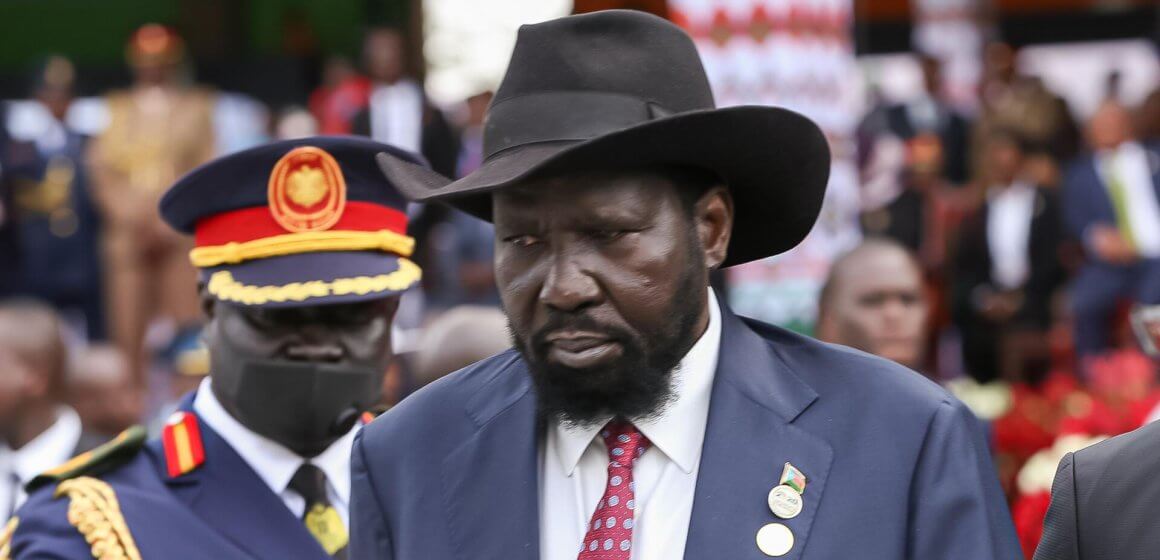|
LISTEN TO THIS THE AFRICANA VOICE ARTICLE NOW
Getting your Trinity Audio player ready...
|
South Sudan Tuesday, April 8, 2025, agreed to admit a man deported from the United States after initially rejecting him, in what analysts are calling a rare diplomatic concession aimed at easing mounting tensions between Washington and Juba.
The dramatic U-turn was confirmed by South Sudan’s foreign ministry, ending days of speculation following the US government’s sweeping visa ban on South Sudanese citizens. The ban, announced by Secretary of State Marco Rubio on Saturday April 5, was a retaliatory move against what the US described as South Sudan’s “non-cooperation” in accepting its deported nationals.
The visa suspension is a major escalation in US immigration enforcement under President Donald Trump’s second term, as he revives a hardline stance on deportations and border security. It is the first time his administration has imposed such a comprehensive restriction on an entire nationality since his controversial return to the White House in January.
At the heart of the diplomatic standoff was a single deportee. US authorities had removed the man believing he was South Sudanese. But upon arrival, Juba denied him entry, insisting he was actually a Congolese national who had been misidentified. The individual was subsequently sent back to the United States, sparking outrage in Washington.
Initially, South Sudan defended its position, claiming it had shared evidence with US officials proving the man’s Congolese origin. However, the US dismissed the explanation, pointing out that South Sudan’s own embassy in Washington had certified him as a citizen, effectively obligating the government to accept him under international protocol.
Deputy Secretary of State Christopher Landau lashed out at Juba’s denial, calling it a “legal contradiction” and criticizing South Sudanese officials for undermining the authority of their own diplomatic mission.
In a face-saving move, the South Sudanese foreign ministry has now said the man will be admitted into the country “as a gesture of goodwill,” with the US. The ministry noted that immigration authorities at Juba International Airport had been instructed to prepare for his arrival, possibly as early as Wednesday April 9.
Beyond the immediate controversy, the row has triggered widespread concern among the South Sudanese diaspora in the US, many of whom currently reside there under Temporary Protected Status (TPS)—a humanitarian provision allowing them to live and work legally due to ongoing instability back home. TPS for South Sudan is due to expire on May 3, 2025, and the visa ban has thrown the community’s future into uncertainty.
“We urge the United States to reconsider this blanket restriction,” said a spokesperson for a South Sudanese civic group in Minneapolis, home to one of the largest South Sudanese populations in North America. “Most of us are law-abiding residents, and punishing an entire community over one case is deeply unfair.”
The timing of the spat could not have been worse for Juba. The country is once again teetering on the brink of conflict, barely seven years after it emerged from a brutal civil war. Last month, President Salva Kiir placed his political rival and First Vice President, Riek Machar, under house arrest, accusing him of plotting a new rebellion. The move has reignited fears that the fragile peace deal signed in 2018 may be unraveling.
In response to the deteriorating security situation, the US embassy in Juba evacuated non-essential staff and issued travel warnings for American citizens still in the country.
South Sudan’s Information Minister, Michael Makuei Lueth, attempted to shift blame, accusing Washington of seizing on the deportation dispute as a political pretext. “No sovereign nation simply accepts any deportee sent its way,” he told reporters. “The US is using this incident to apply pressure during a volatile political moment.”











LEAVE A COMMENT
You must be logged in to post a comment.